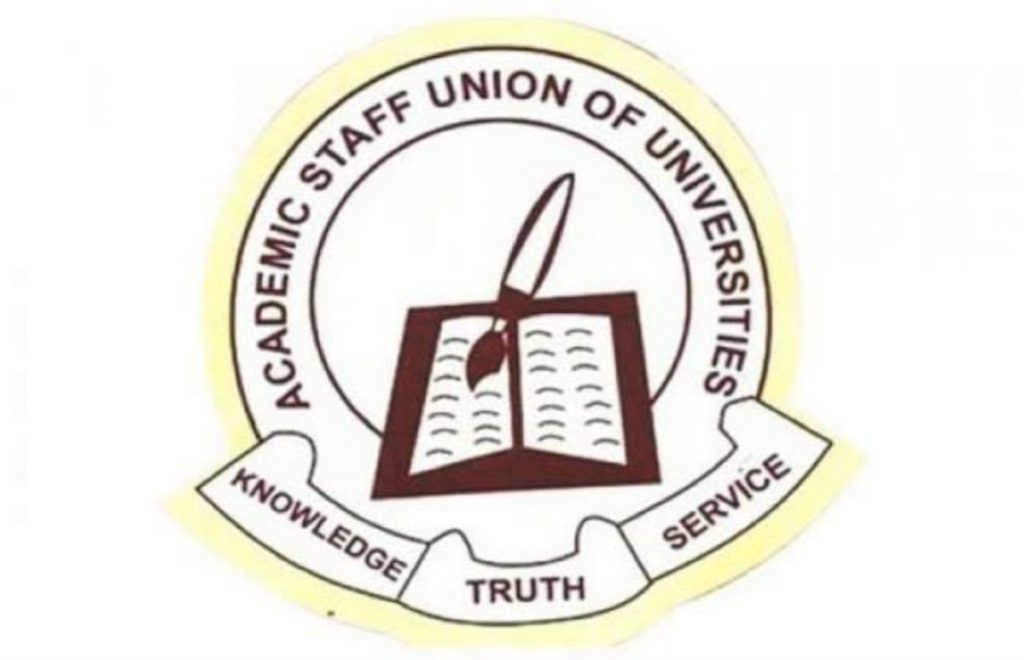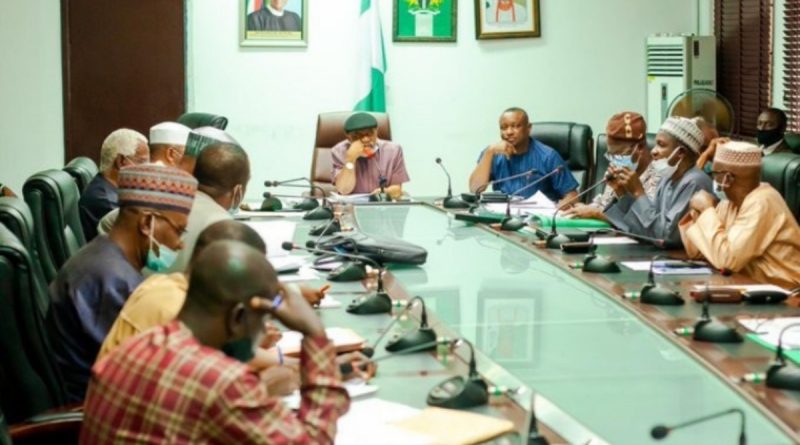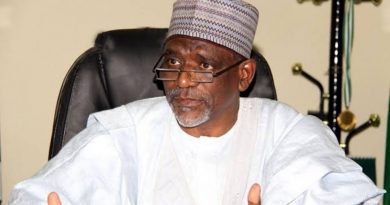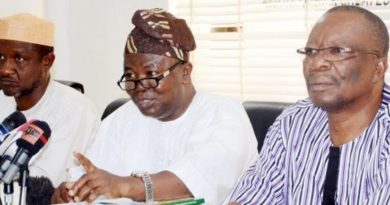Strike inevitable Despite govt’s release of N55.5 billion to universities – ASUU
By Qosim Suleiman
The Academic Staff Union of Universities (ASUU) has said the recent release of N55.5 billion to the universities by the Nigerian government towards fulfilling parts of the contents of the Memorandum of Action signed with the union may not be enough to stop an impending industrial action by the body.
The union, in a statement issued at the end of its South-west zonal meeting which was held on Tuesday at the Federal University of Agriculture, Abeokuta, Ogun State, described the payment as “paltry of the billions of naira of owed revitalisation funds and earned academic allowance (EAA).”

The statement, which was signed by the coordinator of the zone, Adelaja Odukoya, said part of the conditions to avert the strike is for the government “to immediately end the Integrated Personnel and Payroll Information System (IPPIS) for universities and sign the renegotiated agreement document completed in May 2021.”
READ ALSO: Most agreements between ASUU and FG reached under duress – Perm Sec
The union accused the federal government of a deliberate attempt “to further entrench the impoverishment of Nigerian academics and public universities in the country,” adding that “Unfortunately, our country has in place a representative of the ruling class that continues to demonstrate, without any atom of remorse, the penchant not to honour agreements reached with our Union, and indeed their overall pledge to the Nigerian people.”
The new threat is coming exactly nine days shy of one year when the union suspended its nine-month prolonged strike, which paralysed academic activities across the universities in the country.
ASUU had suspended the industrial action in December, 2020, following the signing of a Memorandum of Action (MoA) between it and the government.
The MOA, it said, was “to compel the Federal government to honour our earlier signed MoUs and MoAs with the government occasioned by its shameless failure to fully implement the 2009 ASUU-FGN Agreement and the stalled renegotiation of the same agreement that had fallen due since 2012.”
However, the university lecturers said the government had “woefully” failed to honour the promises including the schedule of implementation it agreed upon at two meetings between August and October, 2021.
“Consequent upon this sad development, our union gave the Federal Government three weeks’ grace within which to comprehensively implement all the issues in our MoA failing which we shall have no other alternative than to commence the process of activating most reluctantly the strike option that has proven to be the only language this government understands,” the union said.
FG moves to avert strike
At the weekend, the Nigerian government said it has paid the universities N30 billion Revitalisation Fund and N22.5 billion Earned Academic Allowance, claiming to have made progress in the implementation of the Memorandum of Understanding reached with the university workers.
“By yesterday, (Friday) the Accountant General’s Office and the Funds Office of the Federal Ministry of Finance told me that they paid the Earned Allowances to the 38 federal universities and by today (Saturday) all the affected universities would have gotten their monies for workers” Minister of Labour and Employment, Chris Ngige told THISDAY at the weekend.
But ASUU described the payment of the Earned Academic Allowances as partial. It said the government has closed its eyes to the parts of the agreement regarding staff salaries and allowances that were supposed to be implemented as far back as 2010.
It said: “The government has only partially implemented the Earned Academic Allowances (EAA) component of the conditions of service which does not involve all our members and which impact on the welfare of those affected members is negligible given the destructive workload they undertake to qualify for the EAA.”
The Contentious 2009 Agreement
All of ASUU’s disagreement with the government in the past decade had been on the government’s failure to fully implement the ‘2009 ASUU-FGN Agreement’.
ASUU described the 2009 Agreement as a “product of a painstaking Collective Bargaining Agreement with the very best brains representing the government on the negotiation table.”
The renegotiation team for the 2009 Agreement was led by the late Gamaliel Onosode on the government’s side and the then ASUU President, Abdullahi Sule-Kano for ASUU. The team had deliberated on the conditions of service for university staff, funding for the university, university autonomy and academic freedom, and other matters.
Included in the 2009 agreement was the introduction of Consolidated University Academic Salary Structure II (CONUASS II), a separate Salary Structure for University Academic staff to replace CONUASS of 2007, revitalisation fund and autonomy for the universities.
Alleged violations
With the introduction of the Integrated Personnel and Payroll Information System (IPPIS) to universities, ASUU has always accused the government of violating the autonomy of universities guaranteed by the University Autonomy Act 2003, a move that played a key role in the March, 2020 strike action.
It said several public universities are unable to recruit the needed academics to fill vacant positions, and that visiting fellowships for scholars have dried up and that universities are no longer able to respond and engage specialists as their need demands.
In 2013, a Need Assessment of Nigerian public universities carried out by the Federal government revealed that an estimated N1.3 trillion was required to revitalise and make the Nigerian public universities globally competitive but “as we speak, the government, despite continuous agitations and strike action by our union has only managed to provide a meagre 19 per cent of the N1.3 trillion at 2013 valuation.”
About UTAS
ASUU alleged that the government refused to accept the University Transparency and Accountability Solution (UTAS) it developed because of the corruption allegedly entrenched in the IPPIS.
“The corruption associated with the IPPIS has been proven to be worse than which it sought to combat. Every effort is being made to ensure that our members remain prisoners of IPPIS.
“Despite overcoming the several boob traps, roadblocks and landmines deliberately set to undermine and ensure the failure of the University Transparency and Accountability Solution (UTAS) which our union developed as a robust alternative to IPPIS at no cost to the government, and which even government and its agents have admitted is every inch far better and advanced than IPPIS, it has refused to launch UTAS. Thus our members are continued to be subjected to unnecessary and avoidable pains of the IPPIS.”
But Mr Ngige was quoted to have said that the National Information Technology Development Agency (NITDA) has submitted its report on UTAS to the government, noting that the report has been forwarded to the ministry of finance, accountant general’s and IPPIS offices “so that they will look at it and sort out other details.”
The minister was quoted to have said that “Copies of the report have also been forwarded to the Federal Ministry of Education and National Universities Commission (NUC).
“Out of the 500 test points that were used in rating it, we are talking of about a 50 per cent success rate. So, it’s work-in-progress. The Ministry of Finance and Accountant General’s Office are to study the report and areas that they are not satisfied with, they will let us know and we’ll get back to NITDA because we have a combined team with the NUC and IPPIS Office.”
Education neglect
ASUU traced what it described as the progressive ‘devaluation, underdevelopment and impoverishment of the Nigerian academics’ to post-independence, which it said was started by the military government.
“With the 1975 Jerome Udoji Committee recommendation and the subsequent implementation of the “unified public service” it recommended, the dangerous recline of the Nigerian academics gathered speed.
“Placed on an annual salary of £11,568, state permanent secretaries levelled up with university professors, and the federal permanent secretaries who hitherto earned below a professor started earning better salary than university professors.
“Under this inelegant and jaundice order, all cadres of military officers not only started earning more than comparable cadres in the academics, Vice- Chancellor’s salaries started trailing sluggishly far behind those of Lieutenant General and full General.”
Strike continues
Now, the union has said unless its conditions are met completely, it could not rule out another strike.
“The irreducible condition to avoid another strike of which there has been no parallel in the history of Nigeria is for the Federal Government to immediately sign the renegotiated Agreement document completed since May 2021 and also end the evil regime of IPPIS and replace same with UTAS which was developed by the Union at no cost to the government and demonstrably confirmed to be far superior to the IPPIS in all its ramifications,” the union threatened.
Credit: premiumtimesng.com
For Advert Placement, Sponsorship, support, Article submission, suggestion, etc, Contact us: info@theabusites.com, +2349015751816 (WhatsApp)








